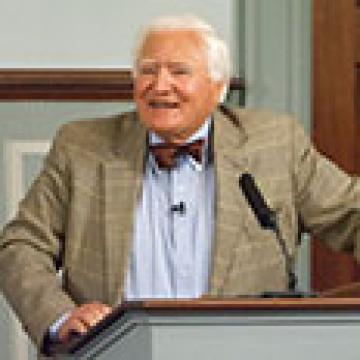Zachary Taylor: The American Franchise
In the 1820s, white manhood, rather than property, had become the qualification for voting. Hence, only white males over the age of twenty-one could vote in the 1848 presidential election. At that time, many states determined qualifications for suffrage and allowed aliens who were not citizens to cast ballots. Neither free black men (in all but a few states) nor women of any race enjoyed the privilege of suffrage. However, given these constraints on the participation of African Americans and women, nowhere in the world was the right to vote so widespread as it was in the United States. In the vote of 1848, a total of 2,880,572 voters cast their ballots in the then thirty states of the Union. This represented 72.7 percent of the eligible voters, down from the 78.9 percent who had voted in 1844. Interestingly, these voters amounted to only 13.1 percent of the nation's total population of 22 million people.
During the ten-year span between the 1840 and the 1850 U.S. census, the nation's population increased from 17 million to 23 million—about a 35 percent increase. Approximately 15 percent of Americans lived in cities or towns of 2,000 or more people in 1850, compared to the 11 percent in 1840. And 1.7 million immigrants arrived in America during the decade—most of them coming from Germany (152,000), Ireland (781,000), and Britain (267,000).
Women's Suffrage Movement
In the summer of 1848, approximately 300 people attended a women's rights convention at Seneca Falls, New York. Among the resolutions passed was one calling for the right of women to vote. Zachary Taylor's opinion on the Seneca meeting is not known, but it is likely that he heard about the convention because the popular press made great sport ridiculing the idea of female suffrage. Old Zack had always encouraged his daughters to obtain as much education as possible, and he had little difficulty thinking of them as capable individuals. But he was no populist on issues of suffrage. He distrusted the popular vote and lined up with the Whigs who preferred minimum property qualifications for suffrage—suggesting that he would have been a traditionalist on women's suffrage. He probably believed that women had their hands full managing the private sphere of family life and that politics should be left to men.
Immigration, Slavery, and Native American Rights
On the issue of immigration, Taylor had lived too far to the west to have been greatly affected by the fivefold increase in immigration to the United States in the 1830s. Most of these new immigrants had settled in eastern urban centers (Irish) or in the mid-Atlantic states (Germans). As President, Taylor looked kindly upon the immigration of German intellectuals and liberal reformers to America following the collapse of the German revolutions of 1848. And there is nothing in his personal correspondence—most of which was lost to roving Union soldiers who sacked his family home in Louisiana during the Civil War—to suggest that he had ever expressed an opinion on the many social reform movements that swept the nation in the 1830s: temperance, evangelism, anti-Masonry, utopianism, immigration limits, prison reform, abolitionism, or women's rights.
As a slave owner, Taylor supported slavery and found nothing morally offensive about the institution. He thought that abolitionists were out-of-touch extremists. Historians claim that he prided himself on the good treatment of his slaves. One of the most interesting episodes regarding Taylor and slavery was his refusal to seize slaves held by the Seminole Indians after their defeat in Florida. Resisting the strong demands of Florida whites, Taylor allowed the Indians to keep their slaves—most of whom had run away from white owners.
As a lifelong Indian fighter, Taylor participated in numerous Indian wars. He generally respected Native Americans as fighters and spent much of his service career trying to protect them from having their treaty-designated lands overrun by unscrupulous white settlers. On the other hand, he shared the common view of Native Americans as potentially dangerous savages to be controlled. Taylor did not give this matter much deep thought or introspection.
